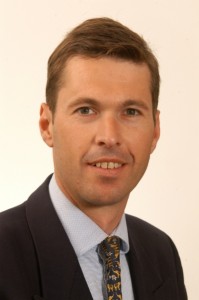Reuters | 11 November 2010

By Laura MacInnis
GENEVA (Reuters) - Increasing investor demand for agricultural land and the funneling of big money into farms is raising questions about whether small, family-sized operations can survive.
Enthusiasm about agricultural commodities has spilled into rural real estate as rich people, private equity funds and some government entities snap up farmland as a way to secure food supplies and hedge themselves against inflation.
An estimated 45 million hectares of large-scale farmland deals were announced in 2009 alone, according to a World Bank report released in September.
Agriculture financiers say their clients are most keen on industrial-size production of corn, wheat, soybeans, cotton and other traded goods, whose value has shot up alongside concerns about strains on the world's food chain.
The result is a trend toward bigger land parcels and a more shareholder-responsive farming culture, which has put intense profit pressure on smaller producers.
"It is a dance, a bit, to find out how to keep the smaller farmers in business," said Mary McNairy of International Farming Corp., a North Carolina investment firm which buys land for wealthy individuals, family offices and sovereign wealth funds.
"Consolidation is happening, and there is really no way to successfully generate the profits we are promising our investors without buying larger tracts of land," she said.
CORPORATE (AGRI)CULTURE
Henry Wilkes, chief executive of London-based InvestAg Savills, said urban bankers' foray into agriculture was creating new demands for farmers, who could previously care for their crops and bring products to market in their own way.
"Clearly farming will become far more corporate. They will have to adapt to that," he said, warning that investors also need to be clear on their game plan for selling or disposing of farmland that they buy with a short-term view.
"You are moving away from the traditional farmers who had been holding the land for several generations to an investment fund that may hold it for seven to 10 years. And none of them have really exited yet," Wilkes said.
Giles Mettetal, director of agri-business at the European Bank for Reconstruction and Development, said there were already a number of "mega farms" being developed in central and eastern Europe, including one 1 million hectare property.
"That is about the size of Denmark."
Neophyte investors in agriculture need to tread carefully, Mettetal said.
"The big challenge will be for these global investments to be transparent and to respect the environment in which they operate. Otherwise the risk is very high."
The World Bank and U.N. agencies have drafted principles for "responsible agricultural investment" in response to fears that China, Gulf Arab states and other countries would buy up foreign farms and worsen hunger in poor areas.
Several of the farming fund managers gathered in Geneva for the Global InvestAg conference, organized by SoyaTech, said that sovereign wealth funds were currently barely visible in the farm sector, though that is expected to change in the years ahead.
The investors also stressed that it made good business sense to tread lightly in farming, engage fully with local communities and use sustainable farming principles.
"My equity is the soil. I will preserve that soil at all costs," said Mark McLornan, chief executive of Argentine farm investment firm Agro Terra.
(Editing by Jane Baird)












